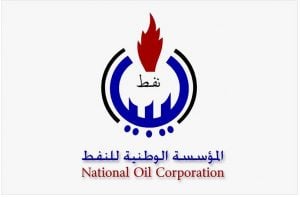By Sami Zaptia.

London, 8 July 2020:
Libya’s oil production and exports, suspended in January this year by the Petroleum Facilities Guard (PFG) in central and eastern region is on track for a precipitous decline over the next year and a half as a result of the illegal blockades, Libya’s state National Oil Corporation (NOC) announced yesterday.
NOC Chairman Mustafa Sanalla said: “At the start of this year, NOC produced an average of 1.22 million barrels per day, and hoped to raise production to 2.1 million barrels per day by 2024. We now estimate production will decline to 650,000 b/d in 2022, in the absence of an immediate restart of oil production and because of the state’s failure to provide the requested budgets to address the many challenges resulting from the blockade.”
“This blockade is a historic crime against the people of Libya. Some of the damage we have suffered is permanent and can never be repaired. Producing oil reservoirs that are shut down suddenly undergo mechanical, structural, chemical and even microbiological changes. These changes can result in early water production and death of oil wells. Reservoir fluids — oil, condensate, and water, that have rested in equilibrium with each other — may mix and form thick emulsions that restrict further production of oil from the reservoir. We already expect water encroachment at the Sara oil field, as well as a decrease in well productivity. Some wells will have to be shut.”
“In some fields, we are concerned about bacterial growth which will change the characteristics of the oil. Libyan oil is valued for being low in sulphur. The bacteria will raise the sulphur content, making it less valuable.”
The NOC complained that his year, only a quarter of its budget was approved by the Tripoli government as a result of the lack of necessary funds due to the illegal blockade by the PFG.
“At the same time, and on top of the $6.5 billion in lost production we as a nation have suffered, NOC faces huge extra costs as a result of the illegal blockade,” said Sanalla. “We will have to work over between 160 and 260 wells, at a cost of between $50 million and $100 million. The major pipeline network, covering more than 6,760 kms, as well as surface equipment will require a huge budget for maintenance and repairs. The total will run to the billions of dinars”.
“Continuing the blockade only makes our long-term problems worse. It is vital that we resume oil production as soon as possible. It is shameful that some Libyans are cooperating in this act of sabotage, which only serves the interests of external states. It is very clear that the interests of Libyans are only served by restarting production immediately’’, he concluded.







